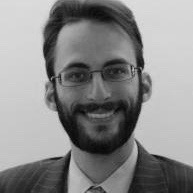
The Jewish Council for Public Affairs (JCPA) held its national conference in Washington, D.C., on Feb. 8-11. Speakers from various Jewish organizations shared tools to combat anti-Semitism, and there were discussions about best practices that could be replicated in Jewish communities across the United States.
In a statement, JCPA Senior Vice President Melanie Gorelick said, “At the upcoming JCPA 2020 national conference, we will be creating a roadmap to leverage the community relations field to combat anti-Semitism. We will be discussing crucial questions: Are we effectively combating anti-Semitism? Are we standing with other communities on issues on which they feel vulnerable? Are we involved in shaping local policies related to housing, education and employment, which will help elevate the lives of those in poverty? Are we ourselves running for office and sitting on boards of non-Jewish charities with our Jewish civic engagement hat on? When we are engaged with others on common issues, we demonstrate our values and influence thinking about us.”
At the plenary session on Feb. 9, there was a panel discussion with members of several Jewish Community Relations Councils (JCRC) discussing programs designed to combat anti-Semitism. Sam Kaplan, president of the Washington JCRC and a board member of the JCPA, spoke about the Institute for the Study of Contemporary Antisemitism’s (ISCA) report to the U.S. State Department that detailed best practices to combat anti-Semitism on social media.
ISCA’s report recommended to social media companies, “Closing influential anti-Semitic accounts and/or taking such posts and all correlating reposts offline can significantly reduce the amount of anti-Semitic content.” For users on social media, the report noted that “counter-narratives do not change attitudes of convinced anti-Semites, and opposing their messages can even highlight them and incite anti-Semites to send more anti-Semitic posts to back up their initial position. However, critical reactions to anti-Semitic posts are also seen by others in the respective social media circles and demonstrate that such messages do not go unchallenged. Counter-narratives are more effective with users who are not hardcore anti-Semites, and can initiate critical reflections on stereotypes and support bystanders in becoming partners in the fight against anti-Semitism. Counter-narratives can prevent anti-Semitic norms from being established, and they can give an important voice to anti-anti-Semites and provide them with resources. Current strategies of counter-narratives, however, are too labor intensive to be implemented on a larger scale.”
“When we are engaged with others on common issues, we demonstrate our values and influence thinking about us.”
— Melanie Gorelick
The report also said, “Cooperation with NGOs [nongovernmental organizations] combating hate speech against minorities other than Jews makes sense when combating anti-Semitism from white supremacists who also target other minorities. The same is not true for combating anti-Semitism from anti-Zionist anti-Semites who focus their hate on Jews and Israelis. Alliances with organizations combating online support for Islamist terrorism might be more effective here as some of the more radical ‘anti-Zionist’ users endorse terror against Israeli targets and justify terror against Jews as a form of ‘resistance’ against Israel.”
Stephanie Hausner, deputy director of the Israel Action Network, spoke about the Jewish Federations of North America’s FedLab program. FedLab was a meeting between leaders from Jewish federations across the U.S. with the goal of creating objectives for those local federations to pursue. The next steps encouraged by FedLab were to expand security, security assessments, government relations and community relations.
Elana Kahn, director of the Milwaukee JCRC, spoke about the Hours Against Hate program, in which participants spend an hour or more interacting with someone of a different race, culture, religion or other characteristic of someone different, under the premise that one-on-one interactions can promote respect and dismantle bigotry. Kahn also spoke about the Milwaukee JCRC’s annual audit of anti-Semitic incidents. The audit is sent to relevant authorities as well as organizations such as the Anti-Defamation League so there is a more comprehensive data set regarding those incidents.
Jackie Congedo, director of the Cincinnati JCRC, spoke about the Driving Out Darkness program, a regional summit in Cincinnati that discusses anti-Semitism.
Karen Elam, director of Jewish Federation of Greater Rochester’s Levine Center to End Hate, spoke about her organization. The Levine Center to End Hate provides programming with the goal of combating hate, such as hosting an event where a former white supremacist speaks about his process of leaving the movement.
At the plenary session on Feb. 11, there was a panel discussion regarding the methods of dealing with the problems anti-Semitism causes. Rob Goldberg of JFNA spoke about the Nonprofit Security Grant Program (NSGP), a program of the U.S. Department of Homeland Security that provides grants to at-risk nonprofits to put in place physical security enhancements at their facilities.
Zachary Leshin is a writer and former congressional staffer based in Washington, D.C.






















 More news and opinions than at a Shabbat dinner, right in your inbox.
More news and opinions than at a Shabbat dinner, right in your inbox.